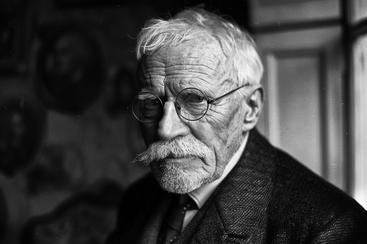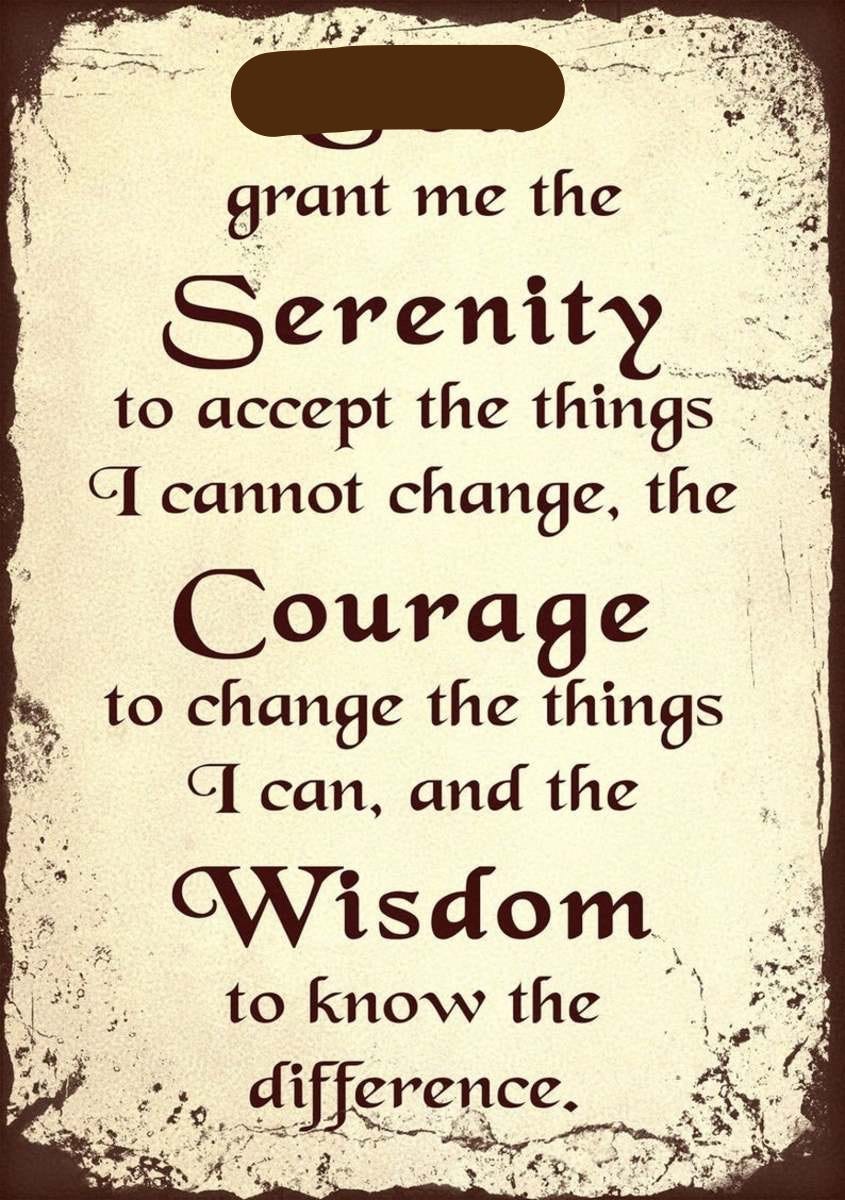Instead of Sobriety; Sovereignty.
A framework to addiction recovery that may be more effective to many.
TL;DR: In addiction recovery, sobriety is a broken compass to many. Sovereignty can replace it.
(A personal note: Though my work with altered states isn’t centered on addiction recovery, it’s a thread that runs through 20–50% of the people I work with. I share this perspective not as an addiction specialist, but as someone who has seen remarkable outcomes. Of the hundreds I’ve held space to who were dealing with addiction, well over 90% did not relapse, and went on to become Sovereign.).
We fail addicts
A decade-long cross-sectional study of some 657,583 participants conducted between 2013 and 2023 shows that substance use disorder has been on a steep incline, demonstrating how the tools offered to combat addiction largely fall short. The most common recipe society offers addicts is sobriety. It is a recipe that is as old as time (“You want to do it? Don’t!”) which doesn’t work for most. We ought to do better.
Background: Sober living
The concept of a sober lifestyle has been present for centuries, often associated with religious or cultural practices that advocate abstinence from alcohol and drugs.
Sober lifestyle gained significant prominence in the 20th century with the rise of Alcoholics Anonymous (AA) and other recovery movements, which promote sobriety as a way of life for individuals struggling with addiction.
AA, Carl Jung and the Key component that got lost along the way.
Few people know that renowned Swiss psychiatrist and psychoanalyst Carl Jung had a direct influence on the formation of Alcoholic Anonymous.
Roland Hazard was an American businessman who struggled with alcoholism in the early 1930s and had sought help from various doctors and treatment programs, Jung among them.
In 1931 Hazard met Jung and asked for his help in getting sober. Jung refused to take Hazard on as a client. When Hazard asked for an explanation, Jung said something that took Hazard by surprise. Jung told Hazard that his chances of getting sober were slim unless he had a “vital spiritual experience.”
Hazard returned to the United States and eventually got in touch with Bill Wilson. Wilson was a recovering alcoholic who in 1934 had a spiritual experience while being hospitalized for his alcoholism. That experience was key to Wilson’s sobriety, yet he thought of it as a personal coincidence or a fluke, not something that could be replicated, let alone incorporated into a sobriety program. When Hazard and Wilson met in 1935 Hazard shared Jung’s idea of a spiritual experience as a key to recovery and Wilson had a big AHA moment. Wilson went on to establish AA’s 12-step program that very year, where the acknowledgment of and connection to something greater than self is foundational to the recovery of self. Or at least, it was.
12 steps became about sobriety, as did most programs
Some 90 years after its establishment, AA gave way to NA (narcotics anonymous) and countless others 12 steps programs. The influence of these 12 steps programs is so great, it is impossible to count the number of meetings held let alone the number of lives affected by them.
The popularity of the 12 steps movement has required it to downplay the core aspect of vital spiritual experience in favor of more replicable elements, such as group support. Empty rooms and free coffee are much easier to come by than spiritual awakenings, after all. Even the very foundational serenity prayer, in many circles lost its “God” opening.
Some of the ways sobriety falls short.
To many, complete abstinence of ALL things is just not attainable.
Research finds that while most US treatment and recovery services are abstinence-based, two in three adults in recovery reported alcohol or other drugs use within a month prior to survey. Other relapse rates average around 80%, that is four out of five humans. Sure- some things are to completely abstain from. The only right amount of Heroin for one to have is NONE. But a person in recovery may foster a healthy relationship with serotonergic psychedelics, for example. Because serotonergic psychedelics aren’t habit-forming, cannot lead to overdose, and can, in fact, help one heal from addiction- Ibogaine perhaps most well known for it, many feel that psychedelics do not defy sobriety. (A term which describes sober + psychedelics is “California sober” (not a joke), initially coined by vice writer Michelle Lhooq).Beyond substances, behaviors.
The main two categories of addiction are substance addiction and behavioral addictions. Sobriety has limited application to the later. Behavioral addictions, which include food, social media, gaming, porn, gambling, shopping etc- are some of the stickiest addictions out there. Abstinence may be a wonderful goal when it comes to substances and even some behaviors such as gambling, yet complete abstinence is not attainable when it comes to behaviors that are necessary aspects of one’s life as such food, internet use, or sex. In such cases one has to be able to arrive at a healthy relationship with said behavior- a far more delicate act than completely cutting the behavior, as it still requires ongoing engagement with and management of (former) triggers.
That TED talk
A few years back a largely wonderful TED talk by Johann Hari hit the circuits. It had the dazzling click bait title “Everything you know about addiction is wrong.” (Really? Everything everyone knows about this topic is wrong?)
Title aside, it made some good points. It questioned basic drug policies and misconceptions about the role of chemical dependency. It went on to quote prof. Bruce Alexander’s research with rats, showing how almost nearly 100% of rats who are given access to heroin water will overdose and die, whereas in a “rat park” with other rats and tunnels and cheese and toys, rats rarely overdose. It goes on to conclude “The opposite of addiction is not sobriety. The opposite of addiction is connection.” Catchy sentence. I believe connection certainly holds a key as to how one might come out of addiction. I believe the opposite of addiction however is something much simpler.
Sovereignty > Sobriety.
Having seen hundreds of people come out of addiction, I believe the opposite of addiction is not sobriety, but sovereignty. Sovereignty, as a north star, addresses the aforementioned limitations of sobriety and moreover- focuses on what YES, instead of what not. In lieu of what we move away from, what we move towards.
Define: Sovereignty.
Sovereignty: Having full autonomy over one’s choices and actions. A sovereign being is self governing, free from external control.
Sovereign living means not having anything- a person, a substance or a behavior- govern one’s free will.
Sovereign is an absolute: Sovereignty is binary. Like pregnancy. One is either pregnant, or they’re not. No one trying to have a child ever asked to be “a little more pregnant”. Such is Sovereignty. Aim not to be “more” Sovereign, but a Sovereign being.
Wider applicability: Sovereignty provides lens through which one can examine their relationships with other aspects of life, including people, groups, organizations and ideas. The sovereign minded is not only less likely to find themselves in addiction but also less likely to end up in a cult or in an unhealthy pattern.
Moving towards Sovereignty
The goal of this article is to define an attainable goal to move towards. I suggest Sovereignty as a North Star. I don’t attempt to provide a map, because well- while north remains north, the path ahead looks different for everyone, depending on where one is. Some- like Carl Jung suggested, will need a spiritual awakening. Some, as John Hari suggests, will find it in connection. Some as Gabor Mate preaches, will go to heal childhood trauma. The three are not mutually exclusive and more often than not, altered states done right with proper integration can help bring about all three.
My experience aligns with all these teachers and many more: To come out of addiction one has to tend to both roots and branches.
Roots: Underlying cause. Tend to the pain, the trauma, the disconnection. Fill the void.
Branches: Outward expression. Find something greater than self to move towards - community/ purpose/ service.
May all beings be sovereign.




As someone who’s been in the rooms of AA and other 12-step programs for almost 30 years, working the programs with intermittent stretches of years of sobriety I have been longing for someone to speak these words. It affirms what I intuitively thought and then personally found through psychedelics, to be true. Thank you.